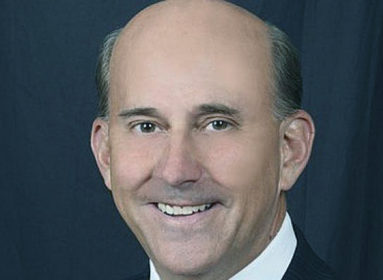
UN Security Council, EU approve deal
(JTA) — The United Nations Security Council and the European Union both approved the Iran nuclear deal. The 15 members of the Security Council in New York unanimously adopted a resolution on Monday, July 20, to approve the agreement reached in Vienna last week between Iran and the world powers. Under the resolution, the United Nations will lift its sanctions against Iran after a report is submitted by its nuclear watchdog, the International Atomic Energy Agency, verifying Iranian steps curbing its nuclear program as agreed to in the Austrian capital.
The European Union also approved the deal on Monday in a vote in Brussels. The deal would remove international sanctions on Iran in exchange for Iran freezing and storing much of its nuclear infrastructure, ridding much of its stockpile of enriched uranium and converting its nuclear facilities for between 10 and 15 years.
On Sunday, the U.S. State Department officially sent the agreement to Congress, which has 60 days to review it.
Prior to the UN Security Council vote, the top Republican and Democrat on the Senate Foreign Relations Committee had urged President Obama to postpone such a vote, saying it usurps the role of Congress. Samantha Power, the U.S. envoy to the United Nations, had circulated a draft resolution on the council that would endorse the deal. Such an endorsement would be legally binding and could inhibit any bid by Congress to reject the deal.
“The Iran Nuclear Agreement Review Act, a bill which 98 Senators and 400 Representatives supported and you signed, established a 60-day period for Congress to consider the nuclear agreement,” said the letter to Obama, sent Thursday, July 16, by Sens. Bob Corker, R-Tenn., and Ben Cardin, D-Md., respectively the chairman and ranking member of the Foreign Relations Committee, which will be among the first bodies to review the Iran deal. “We are deeply concerned that your administration plans to enable the United Nations Security Council to vote on the agreement before the United States Congress can do the same,” the letter said.
U.S. defense chief: Military option in play despite Iran nuclear deal
WASHINGTON (JTA) — The Obama administration is maintaining and improving the option of a military strike as a means of preventing an Iranian nuclear weapon even as a nuclear deal goes ahead, U.S. Defense Secretary Ashton Carter said. “One of the reasons why this deal is a good one is that it does nothing to prevent the military option — the U.S. military option, which I’m responsible for, President Obama charges us with doing, and which we are preserving and continually improving,” Carter said Sunday, July 19, in a meeting with reporters aboard the plane heading to Israel for an official visit.
Carter began meeting on Monday with Israeli officials, including Defense Minister Moshe Yaalon and Prime Minister Benjamin Netanyahu. Carter said his trip to the region, which also includes a stop in Saudi Arabia, another deal skeptic, is not aimed at persuading skeptical allies but of reassuring them of continued U.S. military support in the deal’s wake. Carter said he would instead focus in his meetings with Netanyahu and Yaalon on “ways that we can strengthen an alliance and partnership that is now some 80 years strong, bedrock of American strategy in the region, a critical friend, critical ally, and ensuring their QME, helping them to deter and defend from aggression and terrorism, malign influence.” QME refers to the qualitative military edge Israel seeks to maintain in the region.
Biden defends Iran deal in call with Jewish leaders
WASHINGTON (JTA) — Vice President Joseph Biden defended the Iran nuclear deal in a call with the organized Jewish community that drew a thousand listeners. Biden, considered the closest Obama administration official to the Jewish community, said Monday, July 20, that he has fielded much skepticism among Jews since the major powers and Iran reached a sanctions relief-for nuclear restrictions deal last week. Biden launched into a detailed, hour-long rebuttal to some of the objections he’s encountered, saying, for instance, that the mechanism that would snap back sanctions should Iran violate the agreement would be immediate for the first 10 years and would not require months of work. He also downplayed concerns about delays of up to 24 days in inspectors’ access to suspect sites, noting that the detectable half-life following nuclear activity lasts for centuries. “The idea that they can evade verification is not possible,” the vice president said. The White House endeavored to get as many community lay leaders and professionals to call in, urging Jewish organizations to spread word of the call. Biden did not take questions. Colin Kahl, Biden’s national security adviser, who is in Israel accompanying Defense Secretary Ash Carter, did field some questions after Biden left the call.
Miami, Boston Jewish federations voice opposition to Iran nuclear deal
WASHINGTON (JTA) — Two major Jewish federations, in Boston and Miami, are urging local Jews to oppose the Iran nuclear deal.
“We encourage members of the community to reach out to their elected representatives in the House and the Senate to express their deep concern, and to urge them to vote against this deal,” the Combined Jewish Philanthropies in Boston said in a message Friday, July 17, to Boston-area Jews. The message the same day from the Greater Miami Jewish Federation appeared to call on community members who might not oppose the deal to suppress their dissents.
“We acknowledge that there are diverse views within our community, but ultimately this issue must remain above politics and reflect our collective determination to ensure moral clarity and absolute resolve in dealing with one of the world’s most dangerous regimes,” the message said.
Republicans overwhelmingly oppose the deal, leaving Democrats, particularly in states where they are prevalent and where there are large Jewish communities, like Florida and Massachusetts, key targets for lobbying.
J Street promoting Iran deal through national campaign
(JNS.org) The left-wing Jewish lobby J Street said July 15 that it is building support for the Iran nuclear deal through a “multimillion dollar national campaign.” J Street said it “wants Congress to know that, despite some loud opposition to the deal coming from Jewish organizational leaders, our polling suggests that a clear majority of Jewish Americans agrees with us and backs the deal.” The campaign launched with a 30-second advertisement “highlighting the unprecedented inspections and monitoring of Iran’s nuclear and military sites under the agreement.”
Journalist Jeffrey Goldberg, who has gained a large following from his interviews with President Barack Obama on Israel-related issues, tweeted, “If Israel’s elected leader, and the head of the opposition, oppose the Iran deal, can J Street support it and still call itself pro-Israel?” Goldberg’s comment refers to J Street’s self-identification as the “political home for pro-Israel, pro-peace Americans” as well as the unfavorable consensus view on the Iran deal among Israeli politicians. Israeli Opposition Leader MK Isaac Herzog (Zionist Union) told Prime Minister Benjamin Netanyahu that he is willing to work with Netanyahu’s governing coalition to thwart the nuclear agreement.
AIPAC backing group to press Dems to oppose Iran deal
WASHINGTON (JTA) — AIPAC is backing an action committee that plans to run TV ads across the country pressing Democrats to oppose the Iran nuclear deal. Citizens for a Nuclear Free Iran is a 501 (c) (4), a tax designation that includes groups that advance political causes, and it launched its website on Friday, July 17. The group is “dedicated to preventing Iran from obtaining nuclear weapons capability,” said Patrick Dorton, a Washington spokesman who frequently speaks for AIPAC, the preeminent pro-Israel lobby, which opposes the deal. “It is financially supported by AIPAC and other individuals and organizations.” Dorton said the group’s reach and ethos is bipartisan. The group plans on running a TV ad in at least 18 states. A source close to the new group said the ads would eventually run nationwide and that the group had millions of dollars at its disposal.
Some leading Democrats, among them House minority leader Nancy Pelosi, back the deal, while others have yet to announce how they will vote. The National Jewish Democratic Council on July 17 strongly endorsed the deal.
The group’s advisory board is made up of five former Democrats who have close ties to the pro-Israel community: former U.S. Rep. Shelley Berkley, D-Nev.; former U.S. Sens. Mark Begich, D-Alaska, Evan Bayh, D-Ind., and Mary Landrieu, D-La.; and former Sen. Joseph Lieberman of Connecticut, who ended his career in 2012 as an independent but who was the Democratic vice presidential pick in the 2000 election. The team’s media adviser, Mark Putnam, and pollster, Mark Mellman, are also Democrats.
Israeli daily poll: 47% back Iran strike following nuke deal
(JTA) — Seventy-one percent of Israelis say they believe the Iran nuclear accord brings Iran closer to a bomb, and 51 percent support bypassing President Barack Obama in effort to nix it. Forty-seven percent of respondents in a survey conducted by Maariv, an Israeli daily, supported a military strike to prevent Iran from obtaining nuclear arms. The poll was published Friday, three days after Tehran and major world powers agreed on the deal. Only 38 percent said it was now time to engage with Obama on the execution of the deal in order to achieve conditions preferable to Israel. Eleven percent said they did not know what the best course of action was.








 Southern New England Jewish Ledger
Southern New England Jewish Ledger









